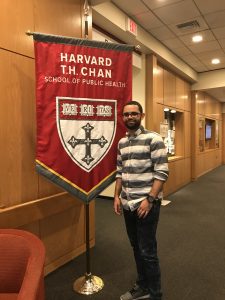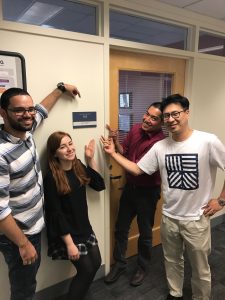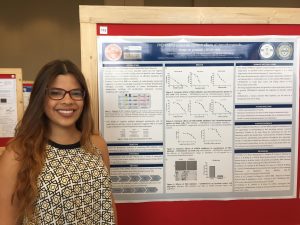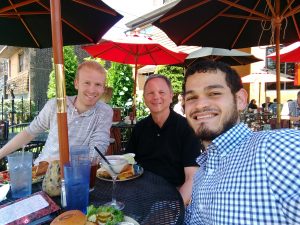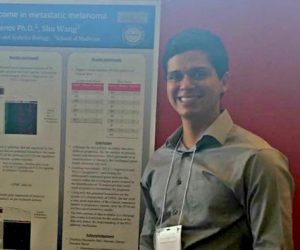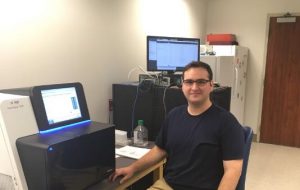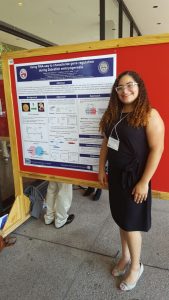Mi nombre es Jovaniel Rodríguez Maldonado, pertenezco al departamento de química de la Universidad de Puerto Rico, Recinto de Rio Piedras y comienzo mi 4to año este próximo semestre. Como parte del programa IDI-BD2K tuve la oportunidad de participar en el Summer Program in Biostatistics and Computational Biology en el Harvard T.H. Chan School of Public Health.
Durante 6 semanas trabaje junto al Dr. Corwin Zigler y el Dr. Chanmin Kim en trazar y predecir el movimiento de emisiones de sulfato (SO4) a partir del dióxido de azufre (SO2) que emiten las plantas de energía eléctrica en los Estados Unidos. La pregunta principal era saber que personas están respirando los contaminantes emitidos por cada planta. Para esto utilizamos datos que contenían información de todas las plantas ubicadas en los Estados Unidos, incluyendo los niveles de emisiones por día y sus coordenadas. De igual manera utilizamos datos que contenían información sobre detectores de particulado menores de 2.5 micrómetros (PM2.5) en todos los Estados Unidos incluyendo los niveles de particulado por día y sus coordenadas. Con esta información creamos un modelo de regresión lineal que tomaba en cuenta la mayoría de los factores que pueden causar variabilidad en las emisiones para encontrar una asociación entre las emisiones y los detectores. Finalmente creamos una aplicación en shiny utilizando el modelo y los datos espaciales que compara el modelo estadístico que creamos con el modelo HYSPLIT que es utilizado actualmente en este tipo de investigación. Este modelo toma factores como el viento e imágenes satelitales para crear sus predicciones mientras que el nuestro es estrictamente matemático. En adición a la investigación tuve la oportunidad de tomar clases de bioestadísticas y epidemiología a nivel graduado. Tuve la oportunidad de conocer a la facultad de la universidad y a muchísimas personas en áreas tanto académicas como en la industria. Una de las experiencias más emocionantes fue visitar el Broad Institute, que es un centro de investigación genómica aplicado a las ciencias biomédicas creado en conjunto entre MIT y Harvard.
Al final del internado tuvimos la oportunidad de presentar nuestros resultados en The Dana Farber Cancer Institute como parte del Pipelines into Biostatistics Symposium y discutirlos con personas expertas en el área. Estoy sumamente agradecido con el programa BD2K y con Harvard por darme esta oportunidad. Es una experiencia inolvidable, llena de retos y de crecimiento tanto personal como estudiantil y profesional. Se lo recomiendo a todo el que esté interesado, lo único que se necesita es ganas de aprender y estar abierto a nuevas áreas de estudio.
